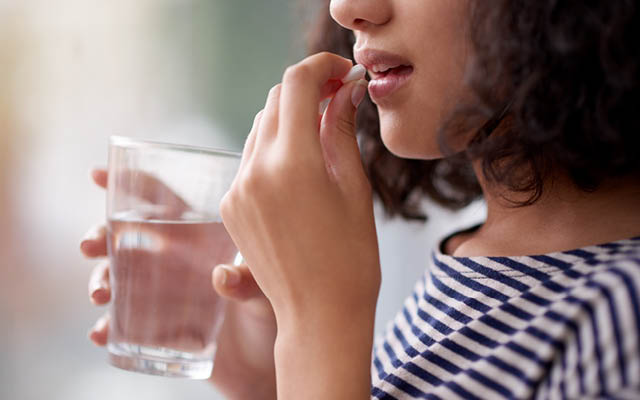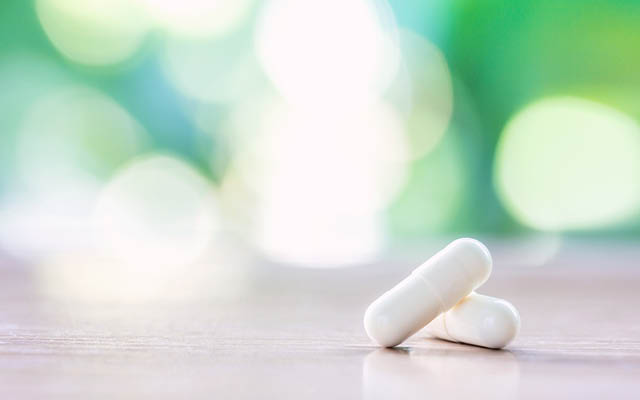Most of us have experienced intuitive “gut feelings,” nervous butterflies, or irregularity under stress — all reminders of our ability to sense the connection between the gut and the mind. Recent research supports that link, and some of it even suggests that normal, healthy microbes in the gut may directly affect the brain chemicals that influence mood.
In a 2017 study from University College Cork, for instance, mice that received the probiotic Lactobacillus rhamnosus displayed notably fewer behaviors associated with depression, anxiety, and stress than mice in the control group. The probiotic appeared to change the expression of GABA (gamma-aminobutyric acid) receptors. GABA is a calming brain chemical, and some of the most powerful antianxiety drugs work through its receptors — suggesting that probiotics may calm the brain through the same channels.
This communication happens partially through the vagus nerve, which travels from the base of the brain to the chest and belly, connecting the brain with the heart, lungs, intestines, and other major visceral organs. It’s like an information superhighway — a high-speed connection sharing messages in both directions — and it plays a critical role in the mind–body connection.
The vagus nerve is also a key player in activating the parasympathetic nervous system, which regulates our rest-and-digest response. When vagal tone is strong, we tend to feel better, with a greater sense of well-being. When it’s weak, we more often feel anxious or depressed, or simply “off.”
Given the nerve’s location, vagal tone is often governed by the overall health of the gut, especially the diversity of the gut microbiome. Dysbiosis, the overgrowth of “bad” bacteria relative to “good” ones in the gut, can harm the brain directly by increasing system-wide inflammation. It can also affect it indirectly by reducing vagal tone.
Studies have shown that gut microbes produce various neurotransmitters, including dopamine, norepinephrine, and GABA. And up to 90 percent of the body’s serotonin is found in the gut. If it is out of balance, so are our neurotransmitters — and so are we.
This is one reason using probiotics to support the microbiome can improve mood. Probiotic foods and supplements help support and increase the number of beneficial bacteria in the gut, crowding out problem microbes and promoting a healthier balance of bacterial species.
And you don’t need to rely on a pill to deliver probiotics. Food — especially cultured or fermented fare like sauerkraut, yogurt, and tempeh — is generally our best source.
It’s important to remember that diversity is key to a flourishing microbiome. You can’t count on yogurt or any other single food to deliver all your probiotics. Aim to eat a variety of fermented foods.
It’s also important to sustain gut health with the prebiotics that help good bacteria flourish. These come from prime sources of dietary fiber, such as onions, garlic, and leeks. (Learn more at “Why Prebiotics Are as Important as Probiotics”.)
Still, if you’re really struggling with depression or anxiety, and you’re also experiencing digestive distress, supplemental probiotics can be very useful. I regularly recommend them to anyone who has been taking antibiotics, which can wipe out “good” gut microbes, as well as for anyone who has been eating a high-carbohydrate diet, which certain rogue bacteria love.
To support microbial diversity, try a broad-spectrum probiotic with multiple strains, including Lactobacillus and Bifidobacterium. I also prefer formulas that are shelf-stable. (For more guidance on supplementation, visit “Everything You Need to Know About Probiotics”.)
And if you’ve just been struggling under stress for some time (which most of us are), a probiotic supplement can be a helpful tool. It won’t work on its own — a balanced diet with plenty of vegetables and quality protein and good sleep habits are still important — but it can play a supporting role. When it comes to mood, you really can trust your gut to steer you in the right direction.
This article originally appeared as “Probiotics and Mood” in the March 2021 issue of Experience Life.




This Post Has 0 Comments